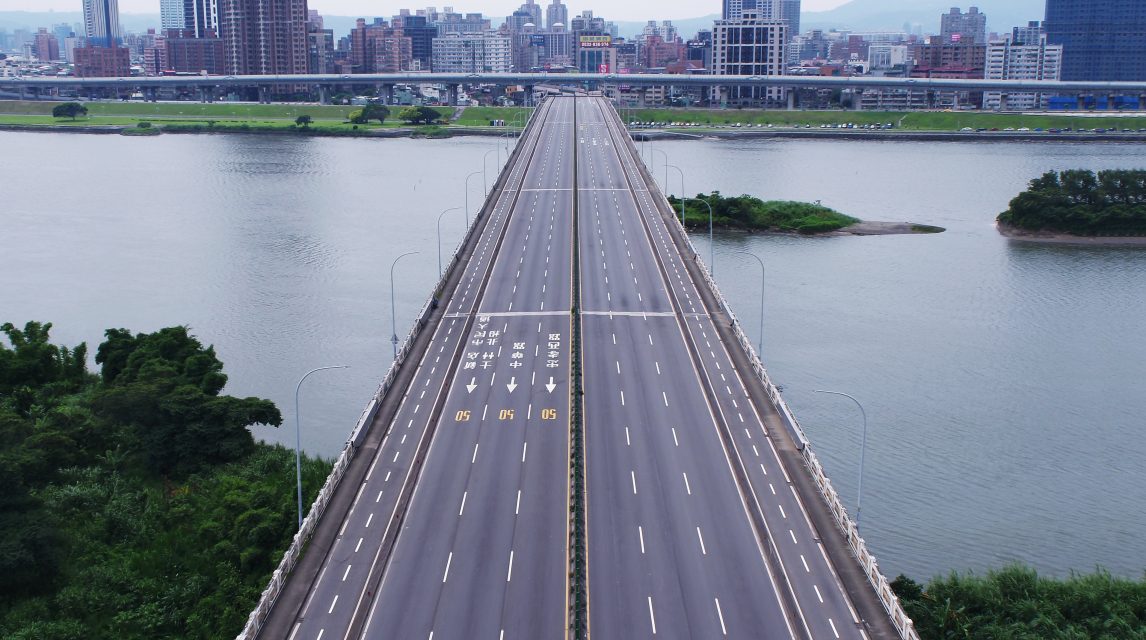 Everyday Maneuver (2018). All images: Unless otherwise stated, © Yuan Goang-Ming, courtesy the artist.
Everyday Maneuver (2018). All images: Unless otherwise stated, © Yuan Goang-Ming, courtesy the artist.
Taiwan’s representation at the upcoming 60th Venice Biennale will address the theme “Everyday War,” it was announced at a media gathering in Taipei on November 23. The exhibition is dedicated to a solo presentation of leading new media artist Yuan Goang-Ming and is curated by Abby Chen, head of contemporary art and senior curator at the Asian Art Museum, San Francisco. This marks Yuan’s second time representing Taiwan in Venice after his appearance in the group exhibition “Limbo Zone” at the 50th edition in 2003.
Yuan states that “Everyday War” will “explore the hidden fears and threats of Taiwan in its current state of existence, and by asking questions about the future, it will re-examine the realities of the present, considering ‘war as part of normal life’ and ‘war becoming the new normal.’” He plans to present two new pieces alongside four previously exhibited works in what curator Chen refers to as a “minisurvey” of the artist’s practice over the past decade.
The multicomponent installation Dwelling (2014), for instance, invites viewers to get comfy on a sofa in the gallery space to watch a short video loop of an exploding living room, while the kinetic installation An Uncanny Tomorrow (2014) presents a dinner table that shakes violently in response to a jolt from an unseen cause. Made the same year, The 561st Hour of Occupation (2014) documents the occupation of Taiwan’s Legislative Yuan during the 2014 Sunflower Student Movement, organized in opposition to a trade agreement with China that was perceived to compromise Taiwan’s autonomy. While scattered banners, video cameras, computers, and personal effects, such as bags and water bottles, point to a major event unfolding inside the legislative chamber, the footage is eerily absent of people, as Yuan painstakingly edited them out in post-production. Another video, Everyday Maneuver (2018), shows aerial drone footage taken during an annual mass air-raid drill when the streets of Taipei are completely emptied of traffic.
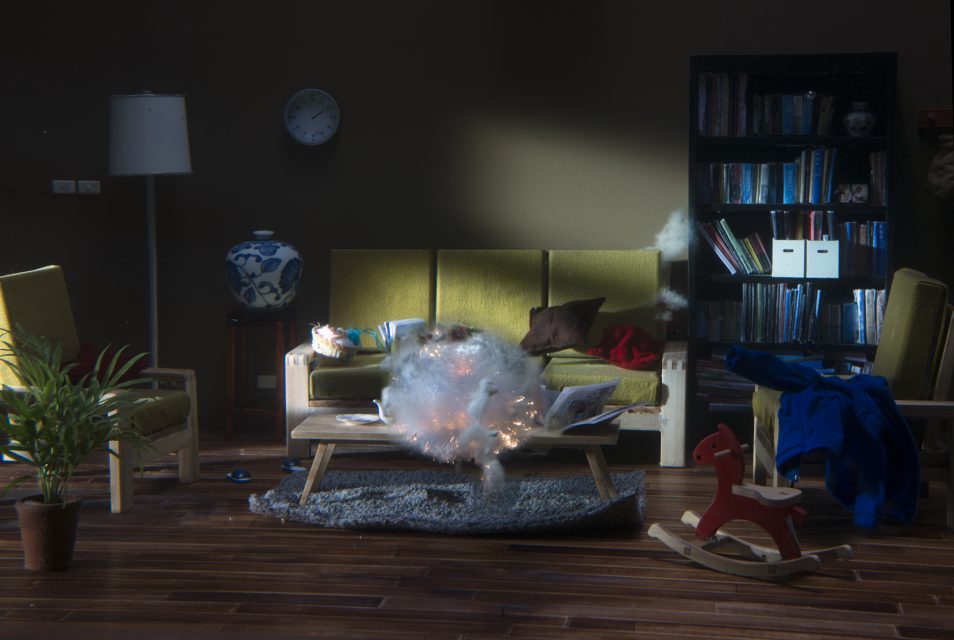
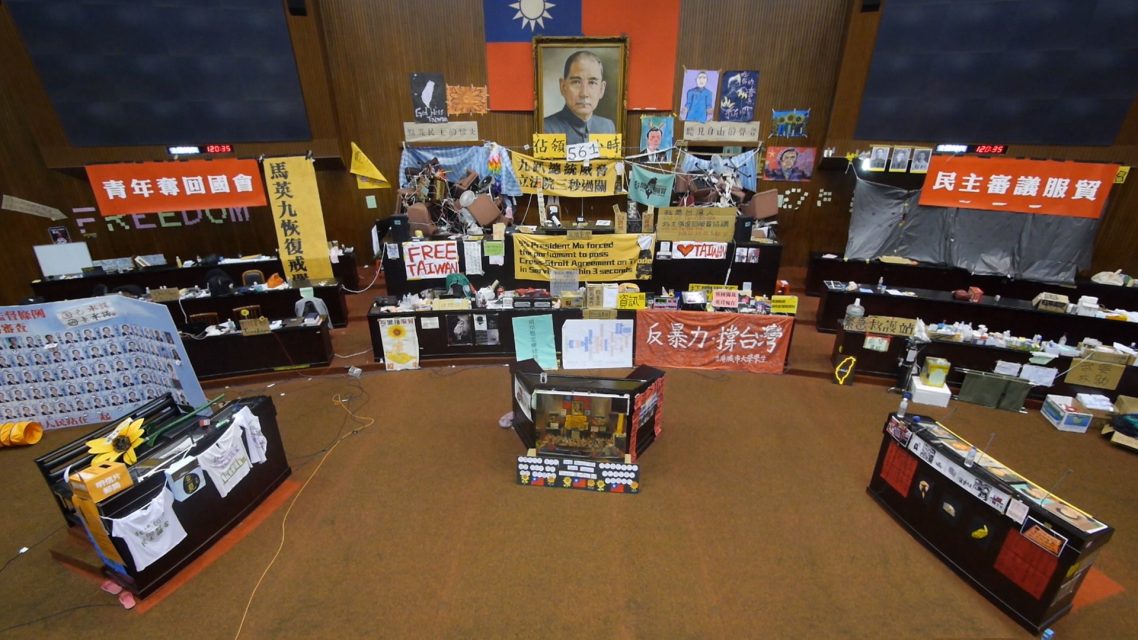
Above: Dwelling (2014). Below: The 561st Hour of Occupation (2014).
Yuan will develop the themes of creeping unease and social upheaval he explored in these earlier works in a new video, Everyday War. As with Dwelling, Everyday War features a living space getting destroyed by explosions. But whereas the artist made a miniature set for the older work, he has meticulously constructed a life-sized studio apartment, complete with a bed, bookshelves, and laptop computer, among other furnishings, to produce the new work. Once finished, Everyday War will depict a surreal situation in which warplanes fly into the apartment and bomb the interior, leaving ruin in their wake, before the scene returns to normalcy. Also in production is an internet-based “new road movie,” Flat World, compiled from material drawn from Google Street View’s global database, which addresses technology-aided surveillance society.
Yuan acknowledges that Everyday War’s imagery is likely to evoke associations with current events in Ukraine and Gaza, but he asserts that the work, which he has spent the past four years developing, is grounded in both deeply personal concerns and the collective situation in a place where the threat of invasion is an everyday reality. “I want to talk about Taiwan and the area where I live,” he emphasizes. At the same time, he connects war and the threat of war to global issues including climate change and the unequal distribution of wealth and resources under late capitalism. “War is something that can feel very remote one moment and then very close the next,” he says.
The artist, who studied in Germany in the 1990s at the Institute for New Media in Frankfurt and the Karlsruhe University of Arts and Design, also cites philosopher Martin Heidegger’s notion of “dwelling poetically” as an inspiration. Although Yuan’s videos can have an uncanny slickness to them, as if produced by CGI, he often works with his hands to invent special effects and camera techniques for each project, including a “cable cam” device that provided the swooping aerial views in The 561st Hour of Occupation. He considers working with his hands to be part of his thinking process. “There are two kinds of media artist,” he tells ART iT. “One uses video as a tool. They have an idea and then get professionals to execute it for them. The other uses video as a medium. I like to research and ask what the essence of video is as a medium. I try to find new possibilities for the medium with each work.”
For Everyday War, Yuan has updated the cable cam by building a camera track lined with magnetically activated triggers that synchronize the camera’s movement with controlled explosions and other effects. He has also raised the stakes by building the set on the roof of his own home, which he invited ART iT to visit prior to the media gathering. While taking every precaution to ensure a safe environment, Yuan reflects that home is an ambivalent concept for those among an older generation of Taiwanese who arrived from mainland China with the Kuomintang leadership in the wake of the Chinese Civil War in 1949 and were unable to return to their ancestral homes for many decades—his father, who was 18 when he left the mainland, included. The artist’s commitment to realizing his vision underscores his sense that the security of home cannot be taken for granted.
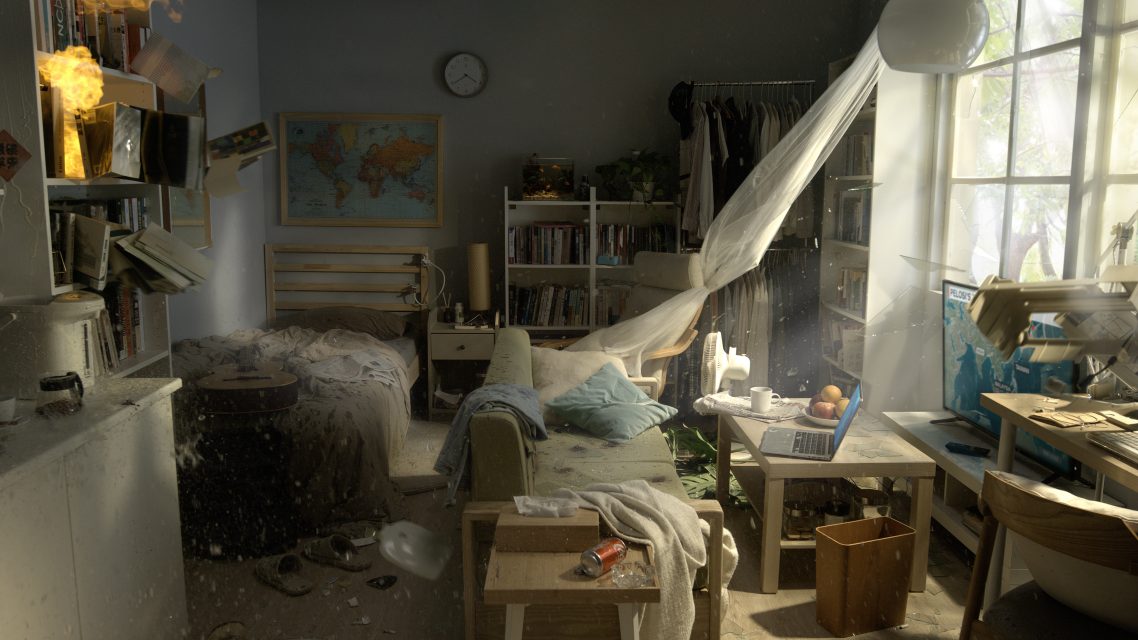 Advance image for Everyday War (work in progress).
Advance image for Everyday War (work in progress).The curator, Chen, recalls being moved by Yuan’s stories about how his father shared memories of war with him through songs from the time. She states that Everyday War will set the tone for the exhibition in Venice: “[The work] reflects an artist’s competing reality of living in Taiwan, where fear coexists with courage. In an era of great uncertainty and division, Yuan’s declaration of . . . vulnerability is the very fortitude and truth that transforms into empathy and shared connectedness.”
Born in China, educated in the US, and now working closely with diverse Asian American communities, Chen brings a unique perspective to the project. She tells ART iT that Yuan’s work will prompt viewers to ask themselves whether what they are seeing is an allegory or a prophecy. “I think it’s both, and a good work should always be both,” she says. “If that helps people relate to Taiwan on a personal level, that would be really good. The videos are not necessarily too long, so if people stay for, say, 20 minutes they will get an idea of what the exhibition is about and what Yuan’s psyche is about.”
Chen is also aware of the need to take a strategic approach to Venice, where the Taiwan representation is not recognized as an official national pavilion. “I really hope a platform like the Venice Biennale can show us examples of courage, decency, and integrity, and encourage people to listen to voices on the margin who are not inside the Arsenale or the Giardini,” she says, referring to the two main biennale venues. “But, also, as a collective—as an audience, as visitors, and even as organizers—will we say we want to feature those who are outside of the mainstream as well? Can we also pay more attention to them? Will a platform like Venice just be another pet of capitalism or can it be a moral compass to guide us? I think that remains to be seen.”
The Taiwan representation will once again be installed at the Palazzo delle Prigioni off St. Mark’s Square. Chen acknowledges the challenges of working in a heritage-listed space where the acoustics are not ideal for contemporary art. She credits the installation team of the Taipei Fine Arts Museum, the representation’s organizing body, for thinking through all the regulations and other scenarios that could affect the realization of the work. Together, they will turn the venue into an immersive “multidimensional cinema” in which the works amplify each other aurally and visually across the space.
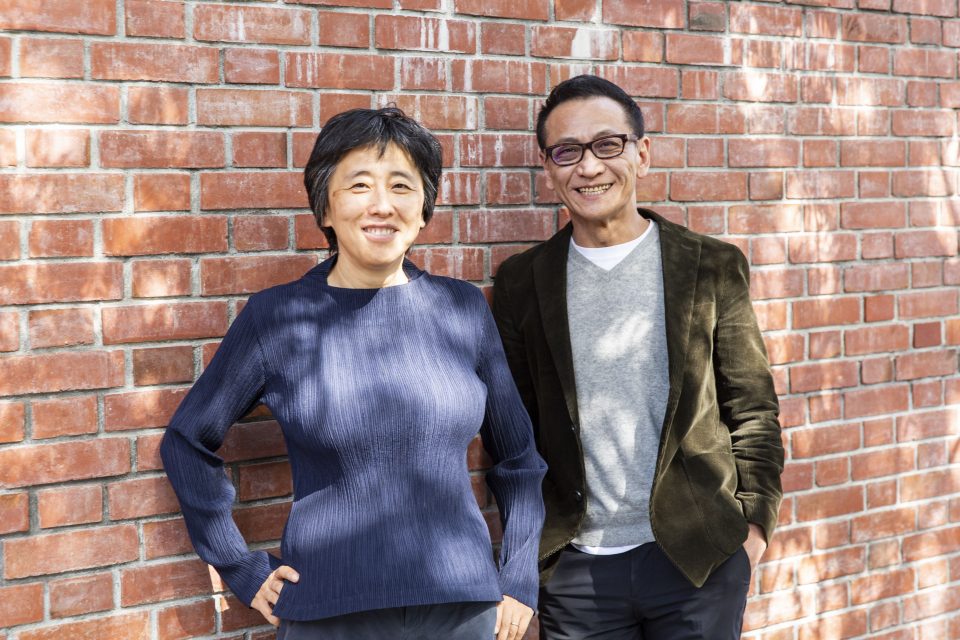
Curator Abby Chen and artist Yuan Goang-Ming. Courtesy the Taipei Fine Arts Museum.
Speaking at the media gathering, Jun-Jieh Wang, director of TFAM, framed Yuan’s exhibition in the context of recent events. “Since the pandemic our lives have been completely changed and globalization is on the verge of collapse. The world is more uncertain than ever,” he comments. “‘Everyday War’ is a multilayered phrase that opens up dialogue with everything that is happening around the world right now.”
“Everyday War,” Taiwan’s representation at the 60th Venice Biennale, will be on view at Palazzo delle Prigioni, Venice, from April 20 to November 24, 2024.
*Some of the quoted statements in this article were spoken in Chinese and translated into English. The statements have been lightly edited for clarity with the aid of a Chinese transcript provided by the Taipei Fine Arts Museum.
